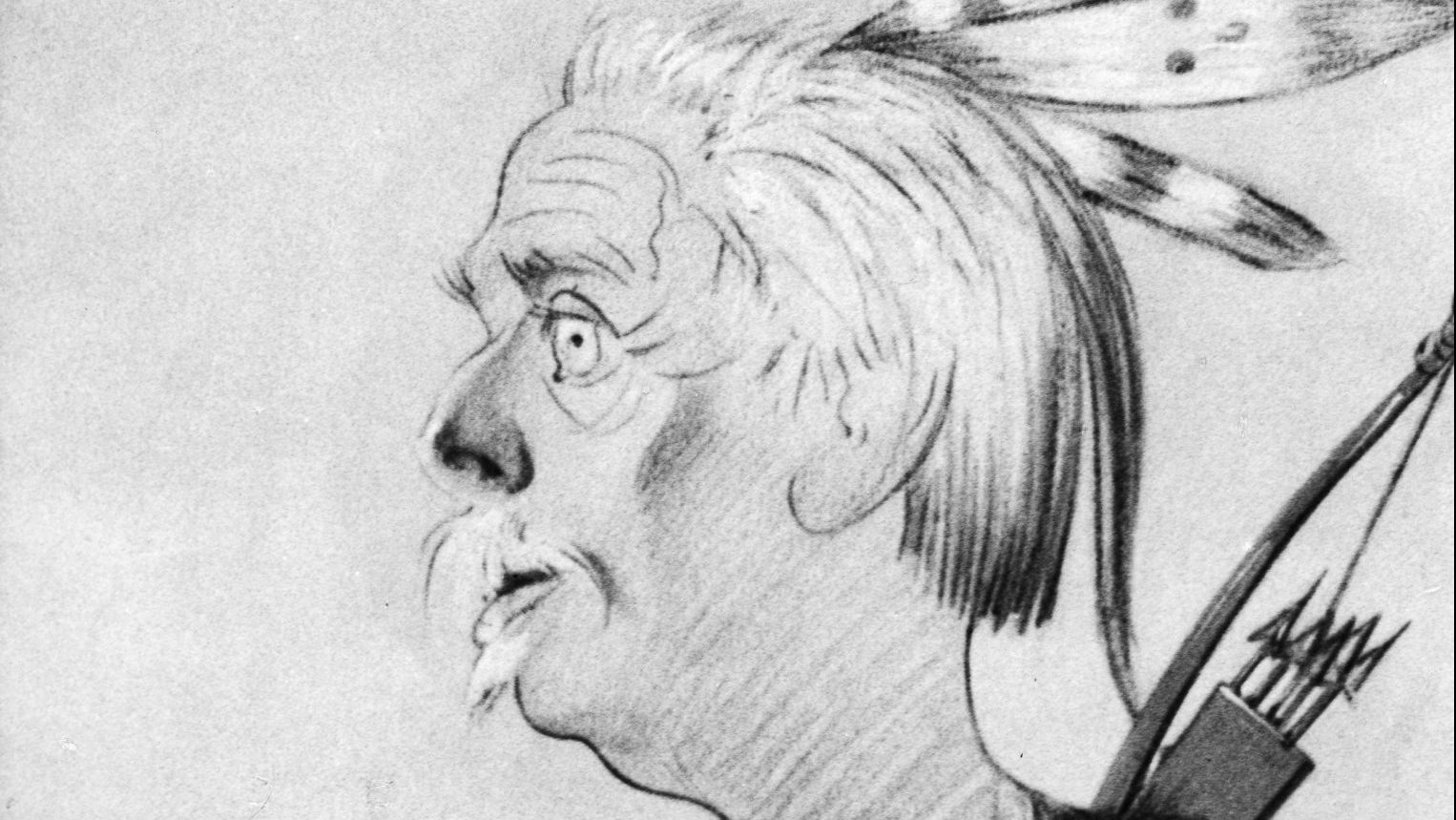One hundred and fifty years ago this month, the main door of Waldheim prison in Saxony creaked open and a man walked out with a small bag of belongings slung over his shoulder, lit a small cigar and began walking.
The four-year sentence was not the first time he had been in jail. He was a habitual criminal, a thief and con artist, and after previous spells in prison it wasn’t long before he resumed his nefarious activities. This time felt different, though. This time he had found a new purpose. He was 32 years old and had wasted enough of his life behind bars. This time he was never going back.
Trudging towards the centre of the town he reflected on the events that had brought him to Waldheim. His first stint in prison had been at Chemnitz a dozen years earlier, a six-week sentence for stealing a watch from his roommate. That put an end to the career he had originally planned: no one was going to hire a music teacher with a criminal record.
He was, he acknowledged, his own worst enemy, only ending up in Chemnitz because his first teaching job in Glauchau had come to a scandalous conclusion. Hired to give piano lessons to the 19-year-old wife of a wealthy businessman, the couple had been caught in flagrante when the husband came home unexpectedly during only the second lesson.
That household was his first experience of wealth and he wanted more of it. As one of 14 children of a weaver he knew poverty but knew he had the wits to escape it, by any means necessary.
After Chemnitz he had spent a few months following a travelling theatre group before a case of mistaken identity presented an opportunity to masquerade as an eye doctor. Calling himself Dr Heilig and wearing a suit he had commissioned but not paid for, he began charging for prescriptions he was not remotely qualified to issue. A career in fraud opened out before him and by 1864 he was back in Chemnitz, this time posing as a seminary teacher to con a furrier out of a number of valuable coats.
Arrested at Leipzig early in 1865 and charged with multiple frauds, he was sentenced to four years in Zwickau’s Osterstein Castle where the first seeds of a different course were sown: a job in the prison library opening his mind to the world by reading the entire contents of the shelves.
After his release in 1869 he found himself in Leipzig unable to resist the lure of duping the gullible. Posing as a police officer he began searching business premises for counterfeit money, never failing to find it, always in large amounts, always sternly confiscated. When he stole a set of billiard balls from a Limbach tavern and attempted to sell them in Chemnitz, the suspicions of a nearby policeman necessitated his stealing a horse and fleeing the city.
He moved on to Siegelsdorf where, posing as a lawyer, he relieved a man of his inheritance and secured large loans by pretending to be first a successful writer and then the illegitimate son of a prince. He couldn’t stay one step ahead for ever, however, and in 1870 his nefarious activities unravelled once the police found him sleeping in a barn and arrested him for vagrancy.
Thinking quickly, he came up with a backstory: he was actually a wealthy landowner from Martinique. The police believed him too, but just when he was about to be released an officer appeared with a mugshot photograph being distributed throughout the region. The game was up. Multiple charges, “simple and cunning thefts, frauds, and frauds under aggravating circumstances, repeated unlawful theft and falsification,” as the judge recited at his trial, resulted in the four-year sentence he had just completed.
The four years Karl May spent in Waldheim prison proved to be a spectacular watershed. He read relentlessly again. He composed stories in his head and on his release began writing them down.
Soon his first novel Die Rose von Ernstthal was selling enough copies to warrant another and Karl May, con-artist and jailbird, was on his way to becoming one of Germany’s biggest literary names.
Karl May is little known outside Germany but his books have sold more than 200 million copies. There are museums dedicated to him across the country and several annual festivals, the largest of which attracts more than a quarter of a million people to Bad Segeberg every year, last year pulling in an extraordinary 430,000.
May’s high-profile fans have included Albert Schweitzer, Franz Kafka, Fritz Lang, Hermann Hesse and Hans Fallada. Nobel laureates Bertha von Suttner, Heinrich Böll and even Albert Einstein were devotees, with Einstein gushing: “my whole adolescence stood under his sign, indeed, even today, he has been dear to me in many a desperate hour”. Kaiser Wilhelm II was an admirer, as was Adolf Hitler, despite the philosophy at the heart of May’s work being the polar opposite of his own.
A year after he left prison, May introduced the character that would truly make his fortune. Despite never having left Saxony, May began writing novels set in the American West, the first of which, Old Firehand, published in 1875, featured a Native American named Winnetou. Winnetou would go on to strike up a deep friendship with a German immigrant named Old Shatterhand thanks to his reputation for throwing a devastating punch.
Winnetou and Old Shatterhand remain two of German literature’s most famous and enduring characters, thanks mainly to a trilogy of novels focussing on them published in 1893. The pair have inspired a string of German cinematic adaptations, most notably in the 1960s – Winnetou played by a French actor and Old Shatterhand by an American – in films whose success many credit with saving the entire German film industry.
Not bad for a former itinerant criminal who was effectively the scourge of Saxony until his pen permitted an honest living. Indeed, commercial fiction gave May an opportunity to employ the innate capacity for invention that had forged his criminal career.
Many people assumed he and Old Shatterhand were the same person, that the stories were autobiographical. For May, who wrote his books in the 1860s, this was the perfect way to explain his long absences while in prison: he was abroad, in the US having adventures with an Apache named Winnetou.
May even took to adopting the wardrobe of the American West, including wearing a necklace made from bears’ teeth, and commissioned a gunsmith to make rifles to the exact specification of those used by Winnetou and Old Shatterhand in the stories. As a convicted criminal, however, he was not permitted to own bullets.
Just as a fuzzy line between fact and fiction had fuelled his more nefarious professional activities, now they were helping to perpetuate the myth he had lived the lives of his fictional creations.
His lawyer at his 1870 trial had even attempted to mitigate May’s crimes by saying that impersonation was, for him, something pathological, he couldn’t help himself. More than a century later, in the 1990s, experts speculated that he suffered from Dissociative Identity Disorder and genuinely believed he was a range of personalities from Dr Heilig, eye doctor to Old Shatterhand, frontiersman.
Of course none of this mattered a jot to his readers. The vision of the Old West May had conjured from his exhaustive reading in the prison library was vivid enough to convince millions of them, and continues to do so today. Many of the thousands who visit the museums and the annual festivals dress as cowboys, adults living out the fantasy lives spawned as children in the tales of Winnetou and Old Shatterhand.
In 2012 Arnold Schwarzenegger said of his childhood fascination with May’s tales: “The stories taught me a powerful lesson about getting along despite differences, but more importantly, they opened up my world and gave me a window to see America”.
Germans have long maintained a fascination with the Old West and with it a great sympathy for the indigenous Americans. Of course generations had travelled from Germany in search of a new life in America, but there is a further cultural resonance in how the early Germanic tribes suffered a similar fate to the Native Americans at the hands of the colonising Romans.
Naturally the question of political correctness is rarely far behind any discussion of May’s work. He was, to a great extent, a man of his time. Winnetou conforms to the “noble savage” stereotype, even converting to Christianity in one of the later books. Yet May was ahead of his time in how his writing became increasingly anti-colonial.
As he grew into his dotage, May’s work became ever more philosophical and increasingly pacifist, triggering a friendship with pioneering German peace campaigner Bertha von Suttner. Just 10 days before his death in 1912 he gave a public lecture in Vienna titled “Ascending to the Realm of the Noble”, in which he championed peace and honour, declaring that the evolutionary progress of a noble form of humanity was not one that could be defined by skin colour.
Von Suttner was in the audience and, according to legend, so was a 25-year-old Adolf Hitler. If he was there, he wasn’t listening.
In Germany Winnetou has come to represent something more than a character in melodramatic fiction created by a reformed criminal who had never been within a thousand miles of the Old West, somehow coming to embody an aspirational sense of Germanness.
When Germany hosted the World Cup in 2006, a watershed moment for modern German identity, Der Spiegel wrote: “There are the German poets and thinkers, the German forest, the German efficiency, the German longing for Italy, and there is Winnetou. Winnetou is the essential German national hero, a paragon of virtue, a freak of nature, a romantic, a pacifist at heart, but in a world at war he is the best warrior, alert, strong, sure.
“Eleven Winnetous,” it concluded, “and we would be world champions.”




